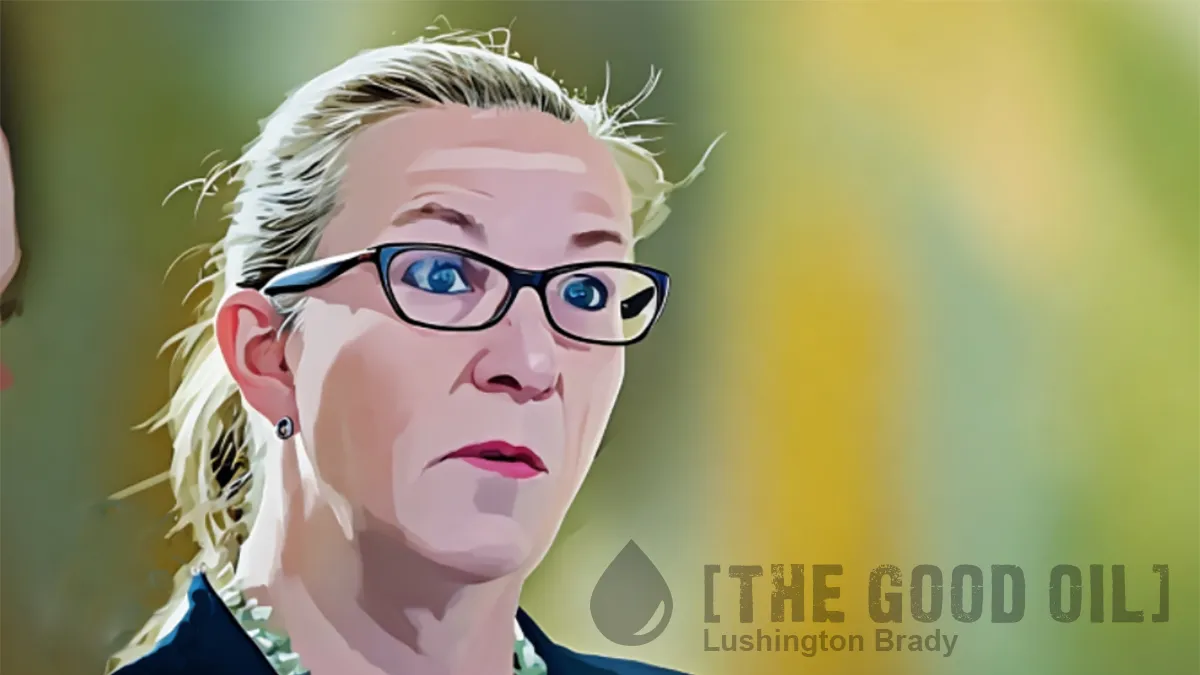Table of Contents
More and more, it seems, judges are taking it upon themselves to be activists. People who want to be politicians but without the bother of actually being elected. Few more so than ACT Chief Justice Lucy McCallum, who seems determined to throw out one of the most basic principles of Common Law – the presumption of innocence – in order to pursue her misandrist agenda.
McCallum, in her own words, sees “ensur[ing] an accused person has a fair trial” as “an intractable problem”. Lest anyone think it a slip of the tongue, she repeated the statement in separate interviews.
Now, McCallum is complaining that ‘in the 2020s, jurors find it so hard to believe allegations of sexual assault’.
Current and former jurors deserve a right of reply to McCallum’s concerns that jurors find it so hard to believe a sexual assault allegation. When entering the jury room, did they start from the position apparently favoured by McCallum that jurors should not find it so hard to believe an allegation of sexual assault? Or did they follow the evidence and the law, and nothing more?
Let’s be clear, here. In bewailing that jurors find it hard to believe allegations, McCallum is, logically, asserting that they should find it easy to believe them. That is, that they should not presume the innocent but the guilt of an accused.
One former juror was astounded by McCallum’s comments. The former juror said those comments “seem completely contrary to the direction of the judge in our case”. He was really clear. “You may only reach a conclusion on the basis of the evidence and testimony here in this courtroom today. So, what I believe or don’t believe was irrelevant. We had no latitude to believe or to imagine anything. We could only reach a conclusion on the base of the evidence provided, and that’s exactly what we did.”
And even that was with the court stacked heavily against the accused.
It’s a matter of public record that this trial concerned a historical allegation of sexual assault. It was alleged to have happened some 10 years before the defendant was charged, and the subsequent trial. The jury heard no other testimony about the alleged assault except from the complainant. After deliberating for 20 minutes, the jury found the defendant not guilty.
Unpacking McCallum’s comments leads to even more troubling questions.
The idea that jurors shouldn’t find it so hard to believe an allegation of sexual assault is disturbing on so many levels. As a former juror told The Australian this week: “When I read those comments (by McCallum) I thought, where is she coming from? Is she trying to say that we’ve got to get rid of juries and just let these superior judges and all that handle the criminal justice system? Should they be handling it? What’s wrong with us, ordinary Australians being involved in our own justice system?”
What’s “wrong” is that they’re clearly not subscribing to the ‘believe women’ mantra. A maxim which has the logical corollary of ‘don’t believe men’.
As for the idea that the likes of McCallum are better equipped to pass judgement than a jury of one’s peers, consider only her garbled, contradictory statements about Canberra juries.
On the one hand the Chief Justice recalled her days as a prosecutor in Canberra. “We loved Canberra juries because they got it right,” she said. “I have never experienced a trial where I didn’t think the result was right.”
But the ACT’s most senior judge also said that “since I’ve come back to Canberra, I have a feeling of unease about what juries make of allegations, particularly allegations of sexual assault … I want to understand why in the 2020s jurors find it so hard to believe allegations of sexual assault”.
So, she loved juries when they agreed with her, but disagreeing with her is an intolerable state of affairs?
Apparently, when Chief Justice McCallum wants a jury’s opinion, she’ll give it to them.









